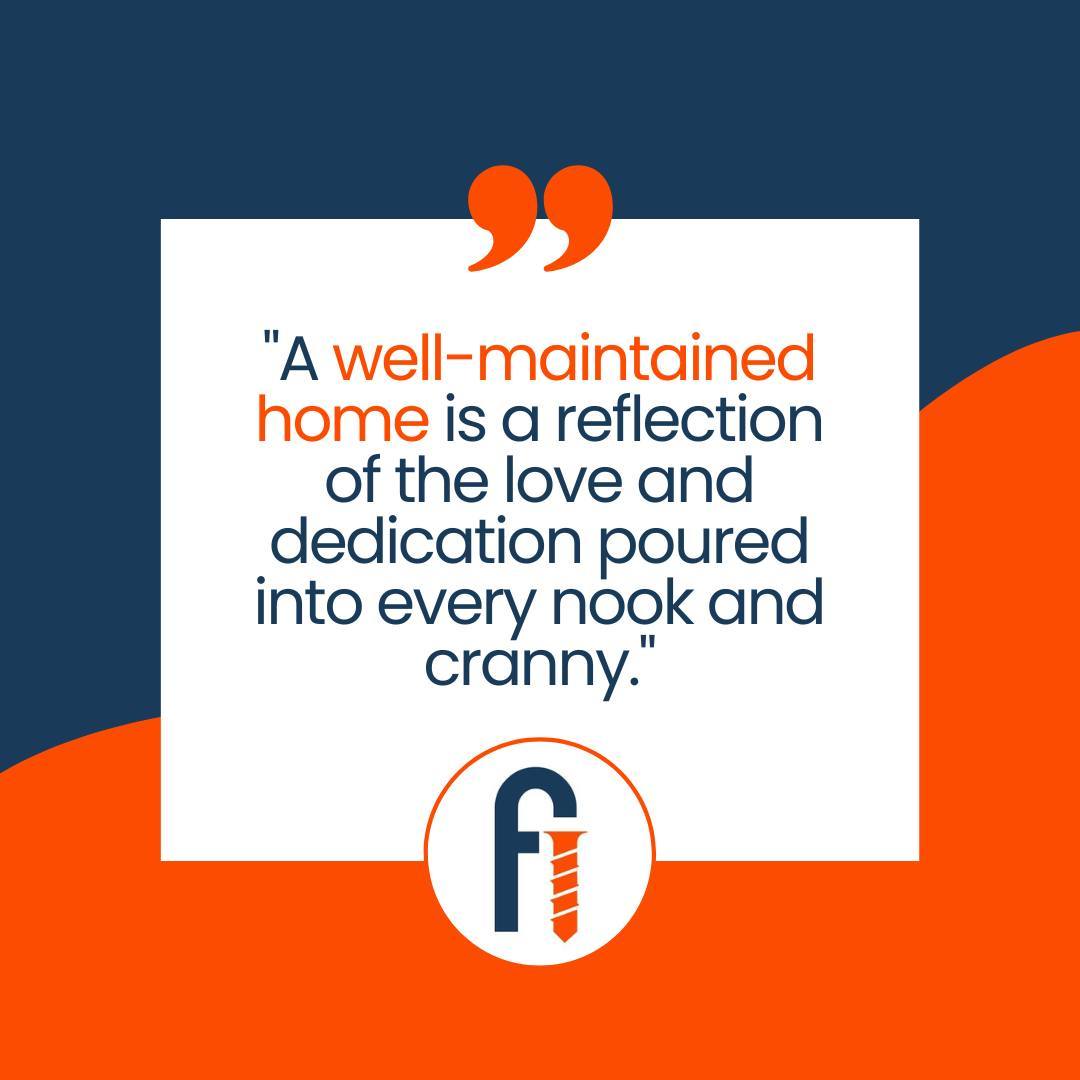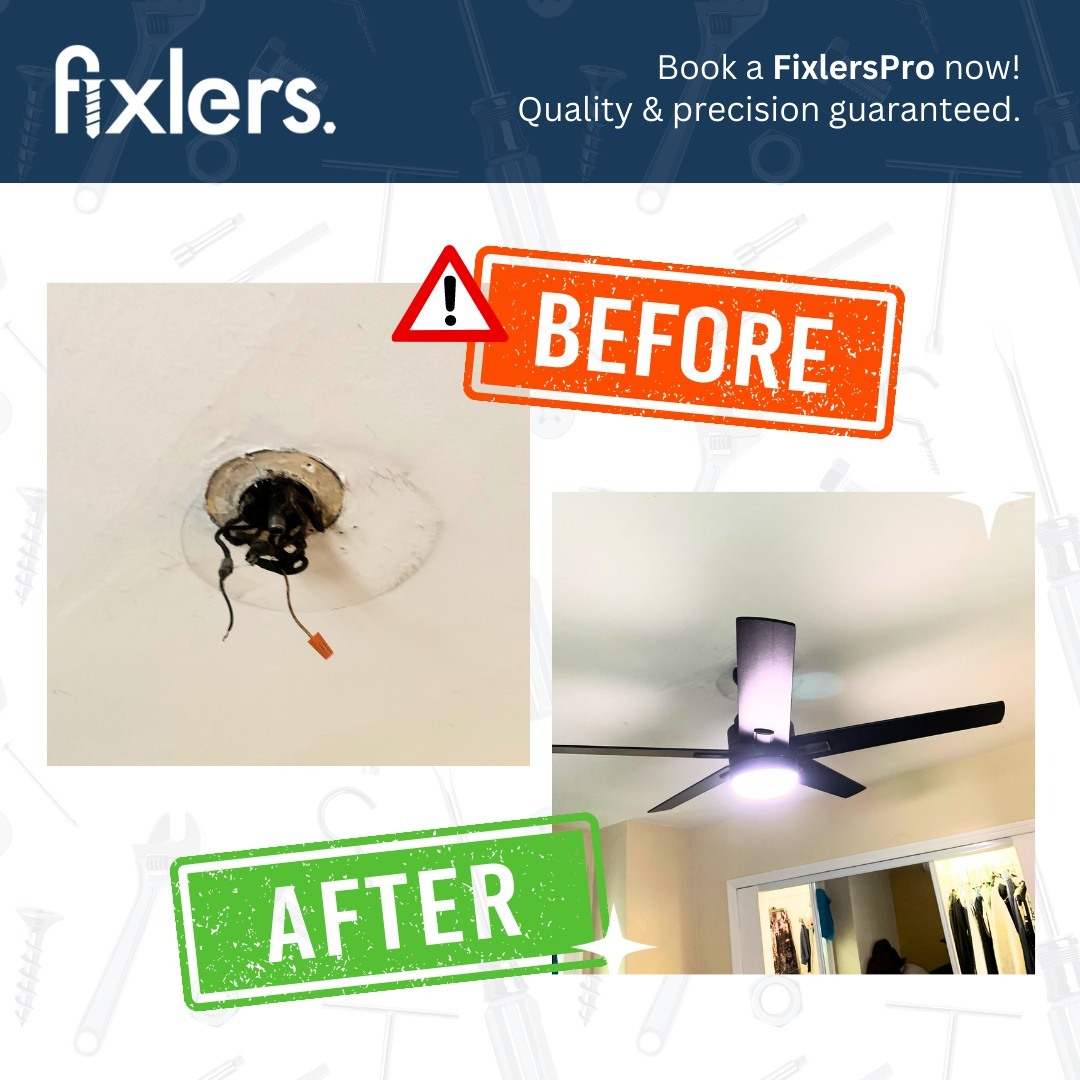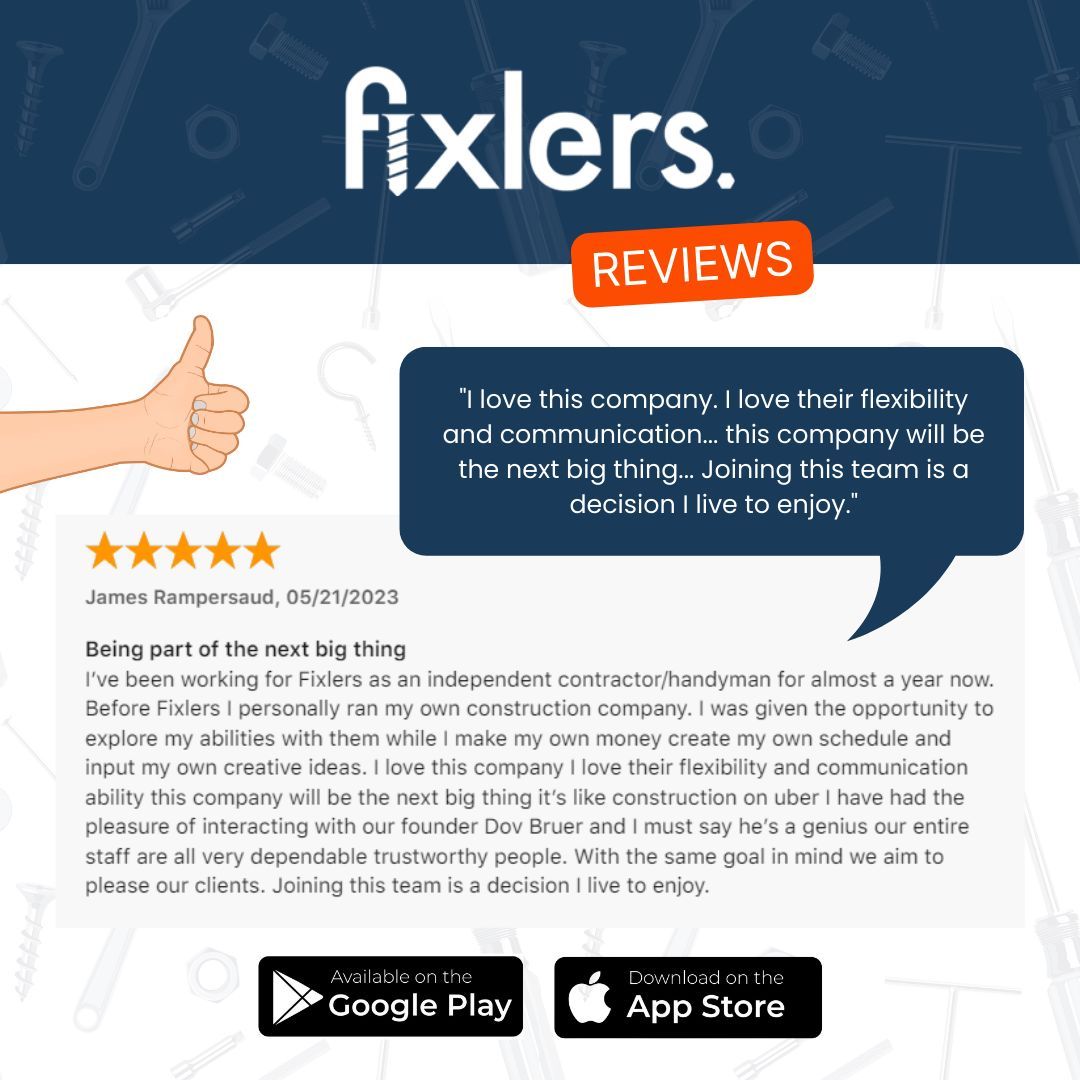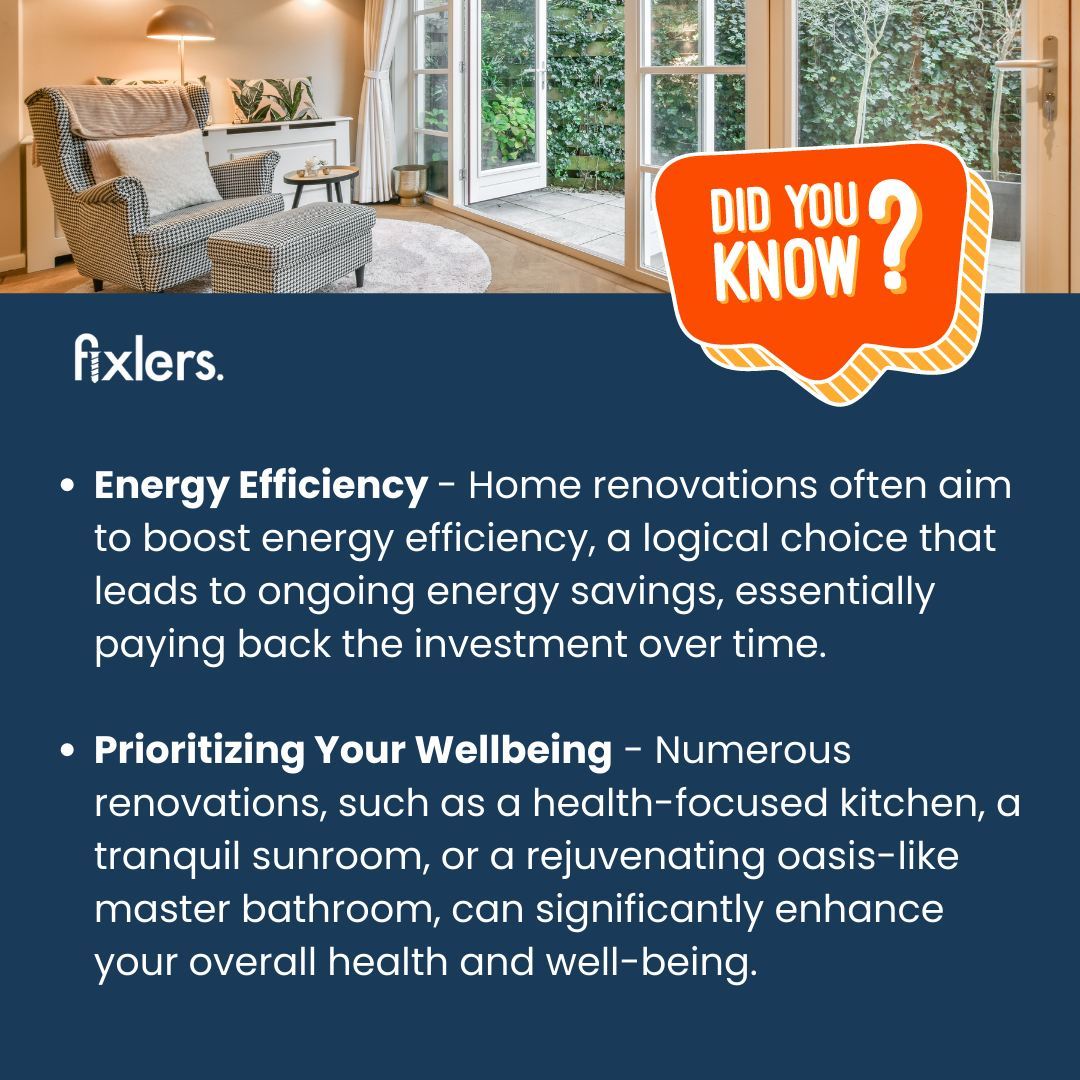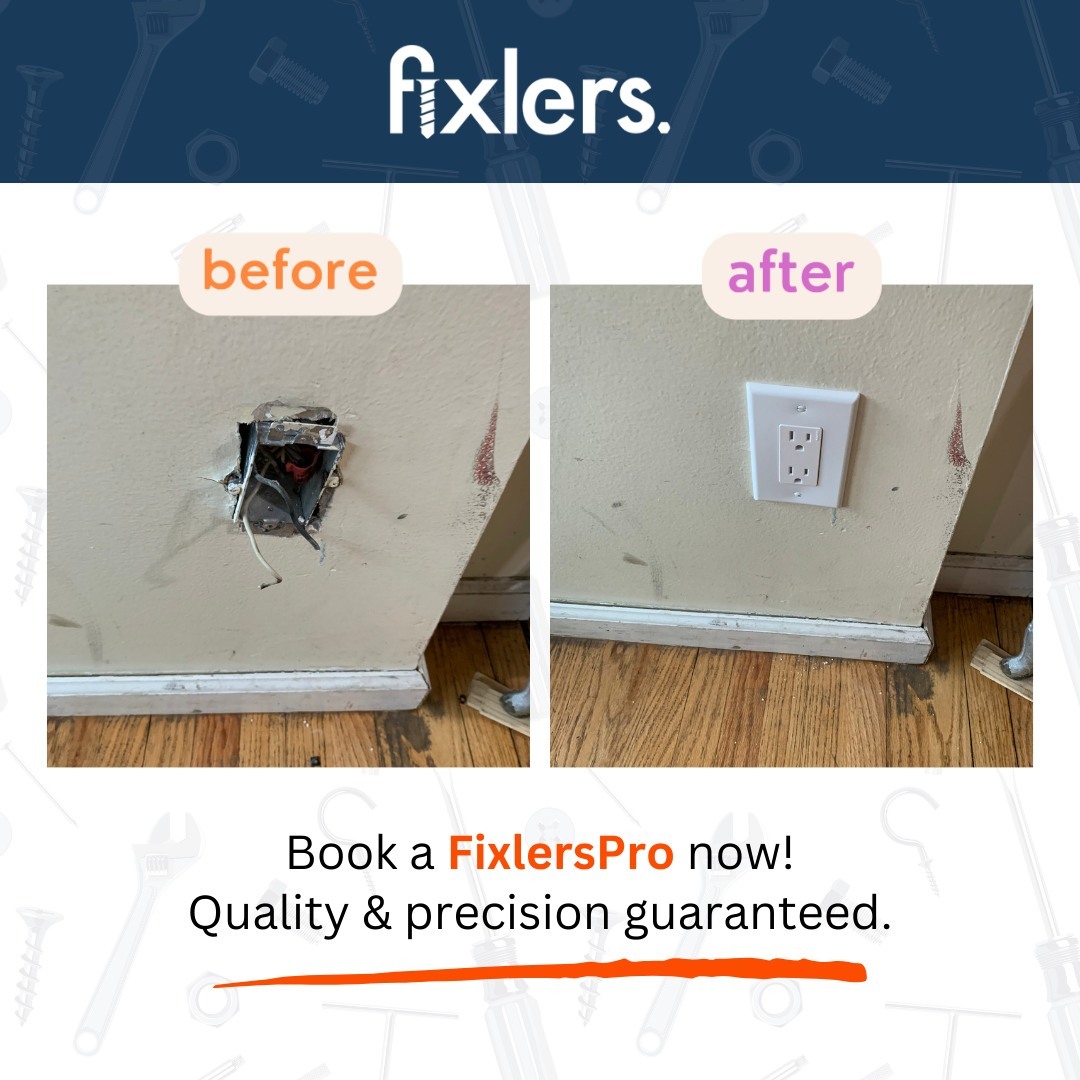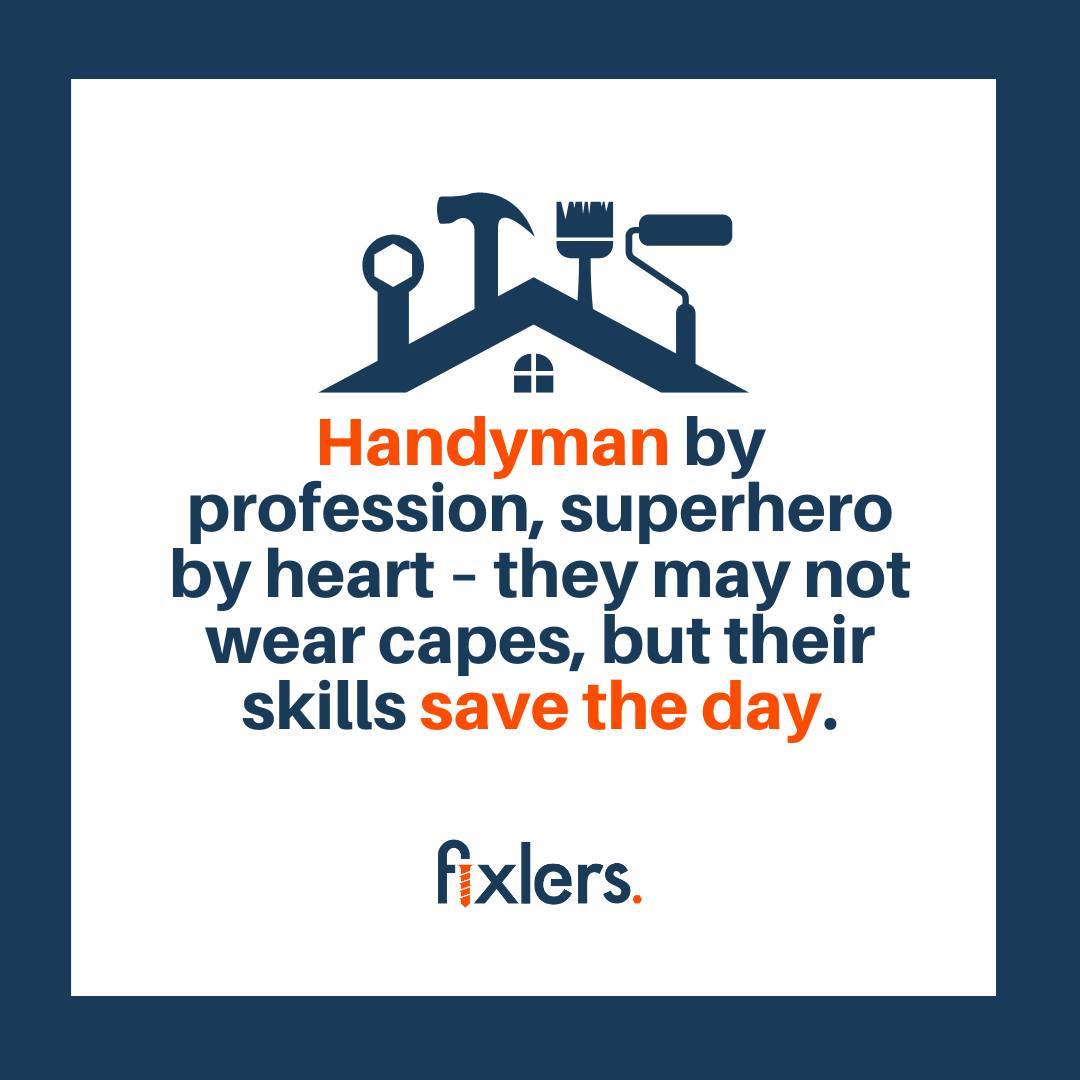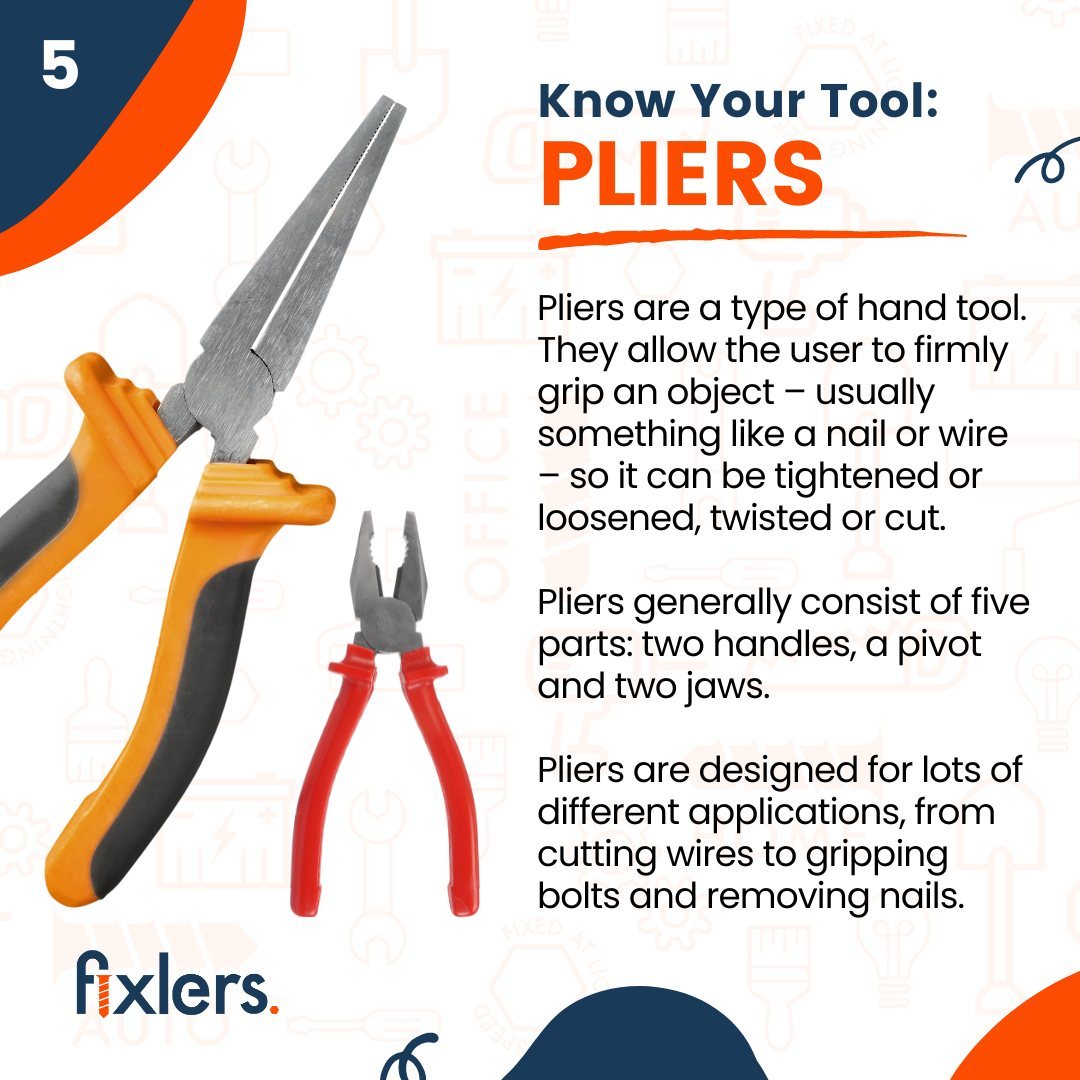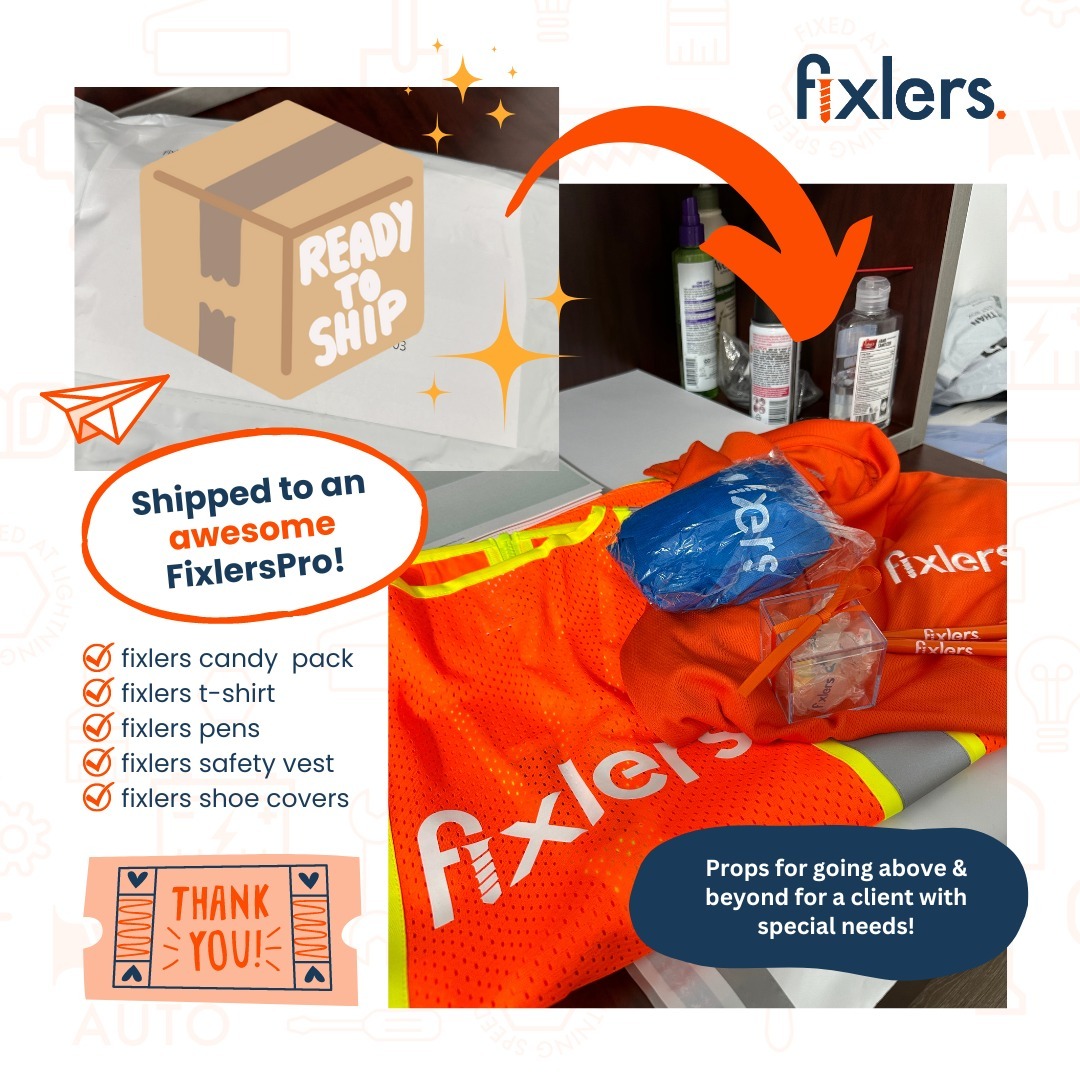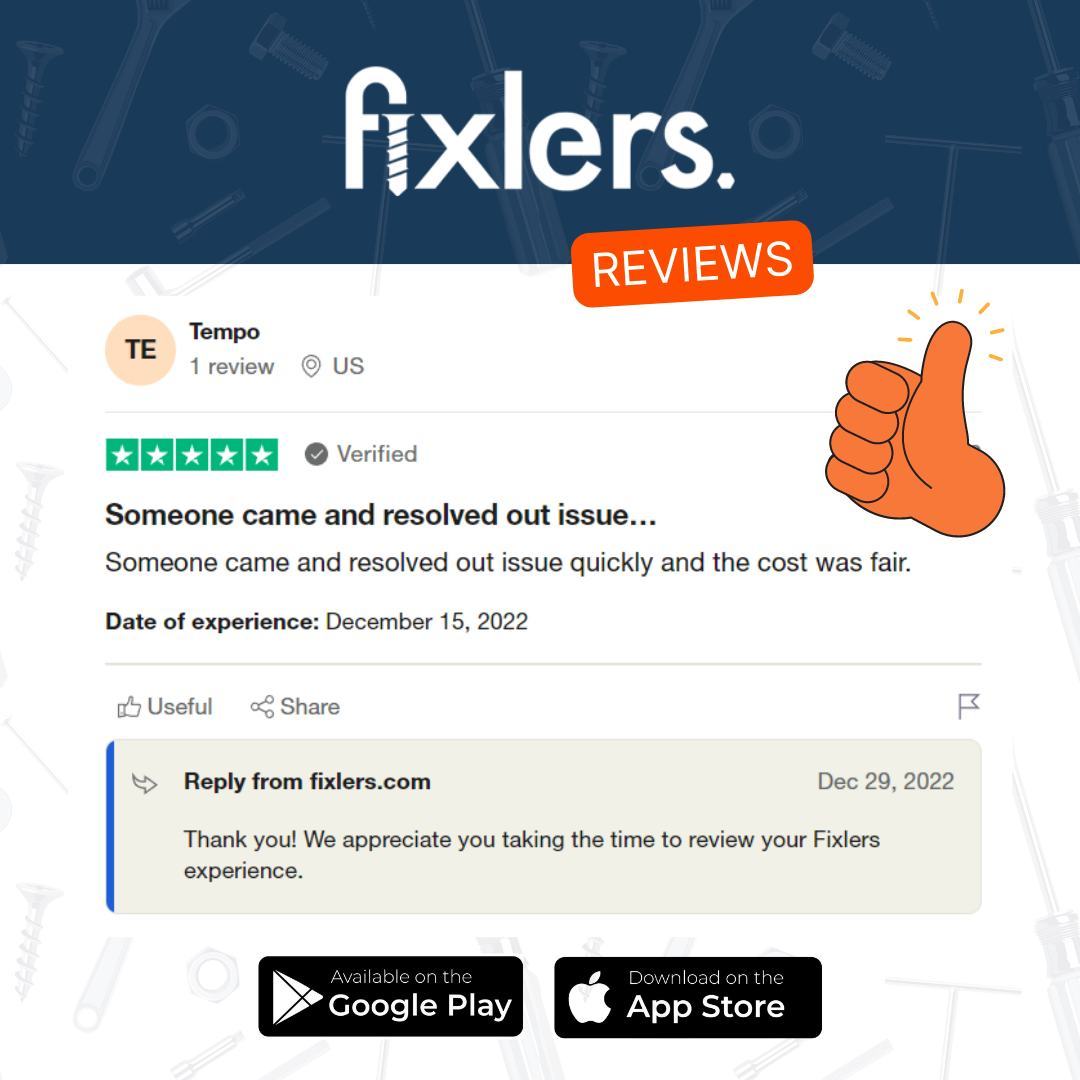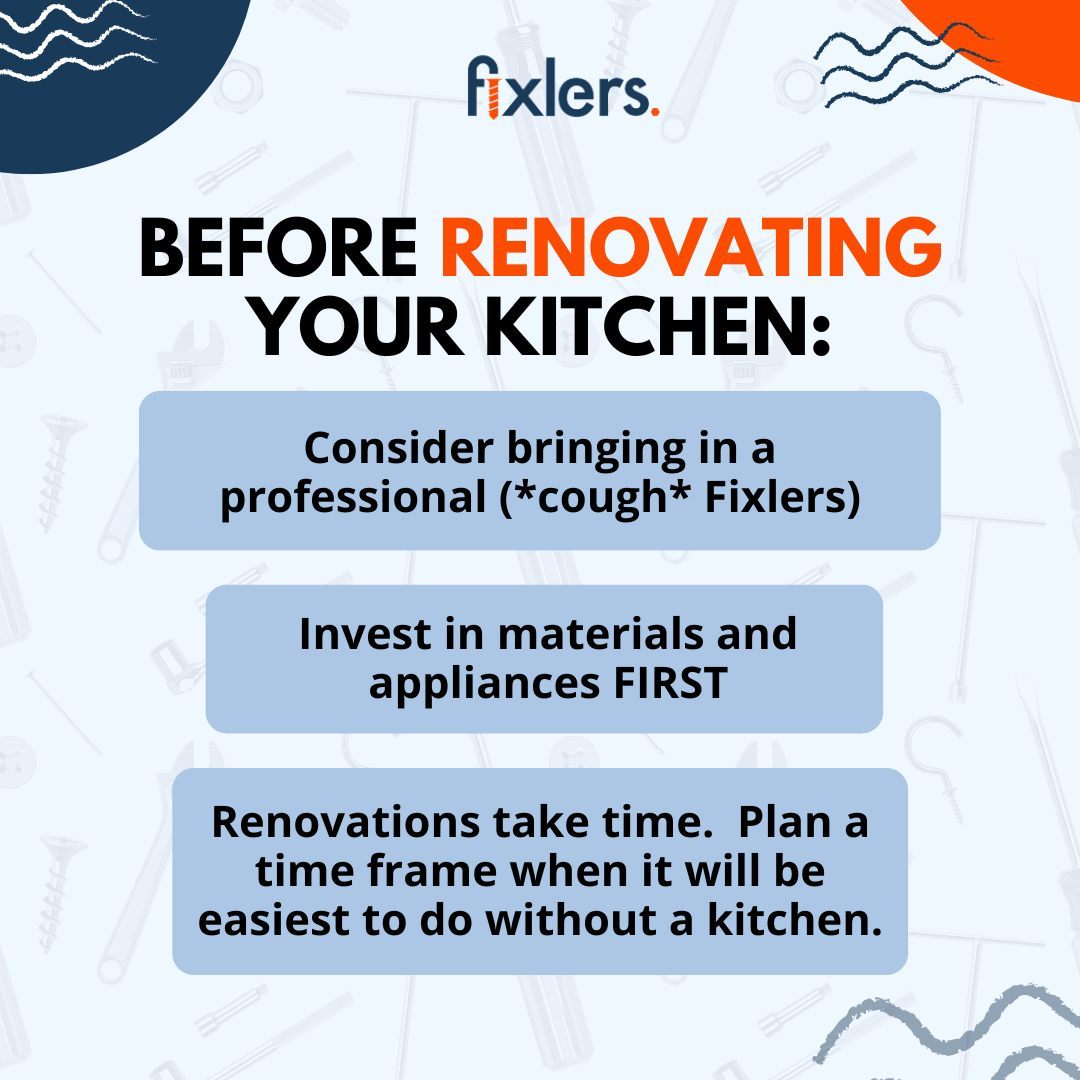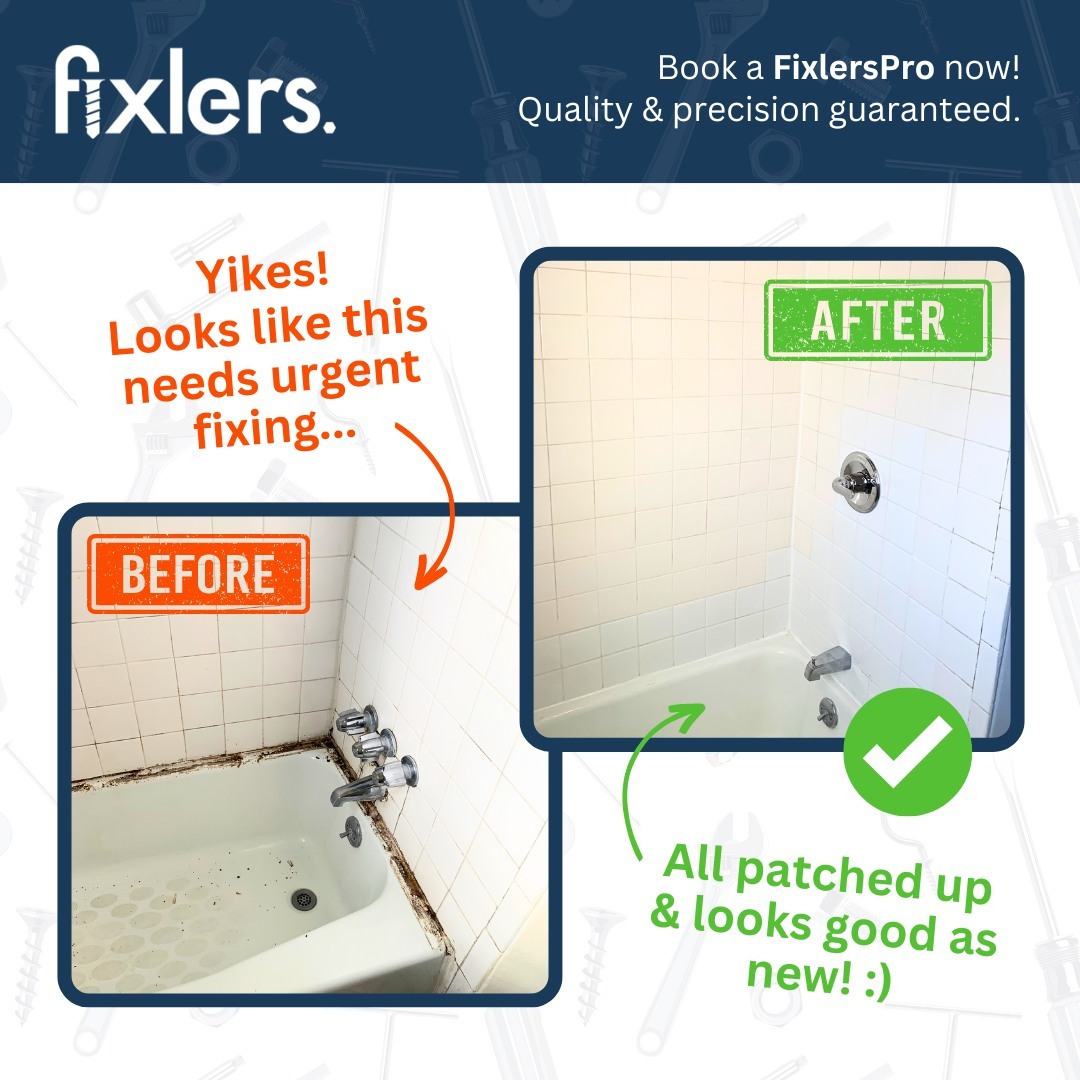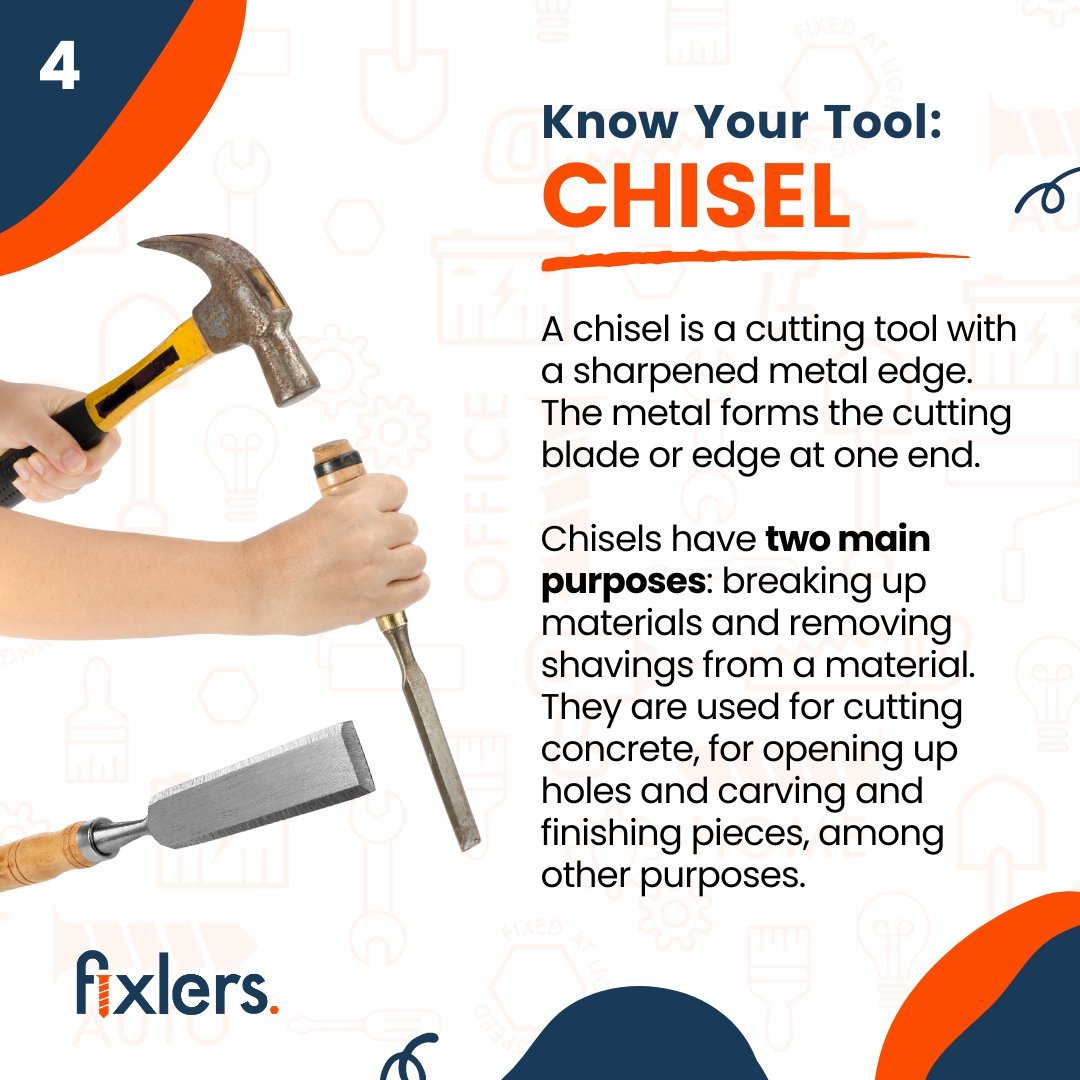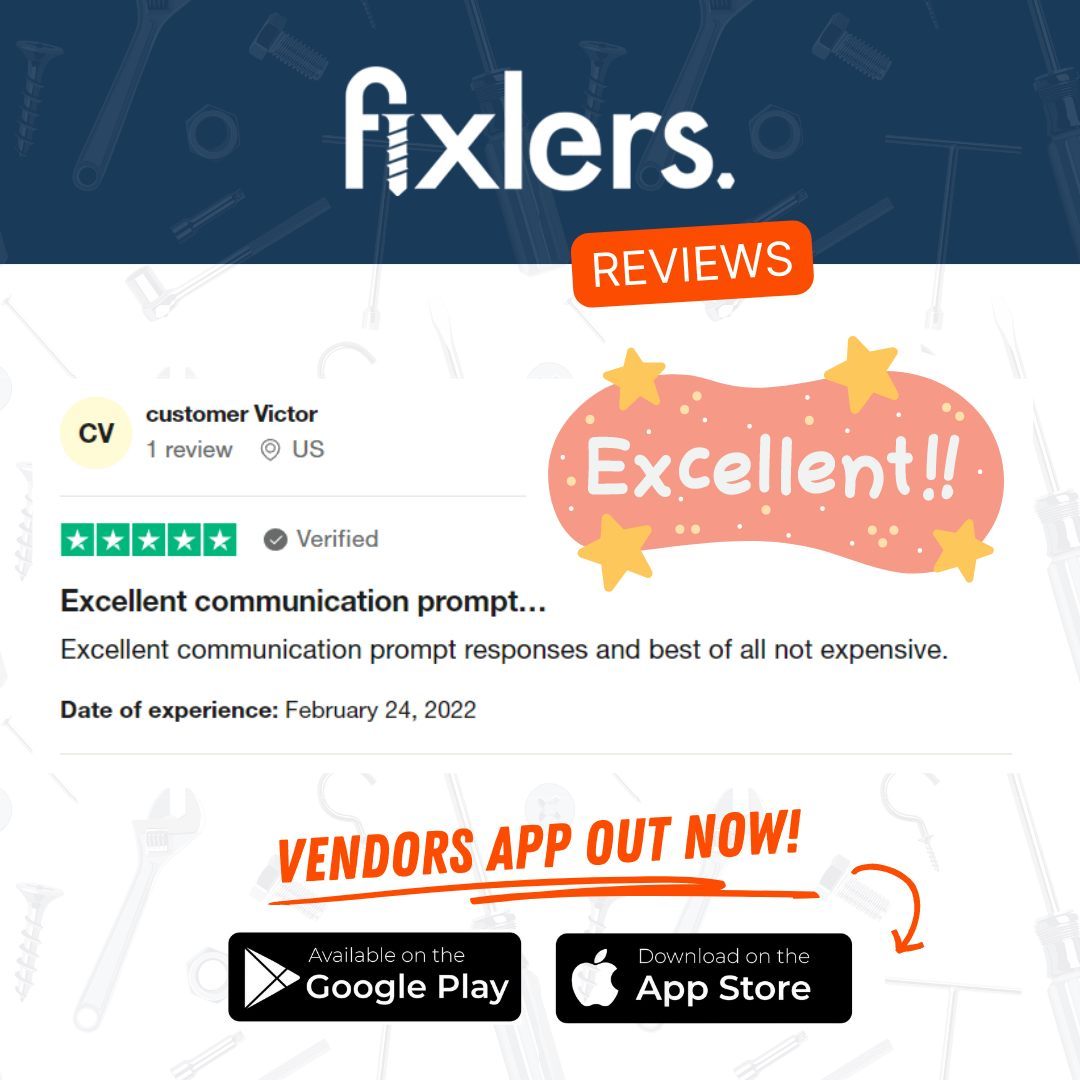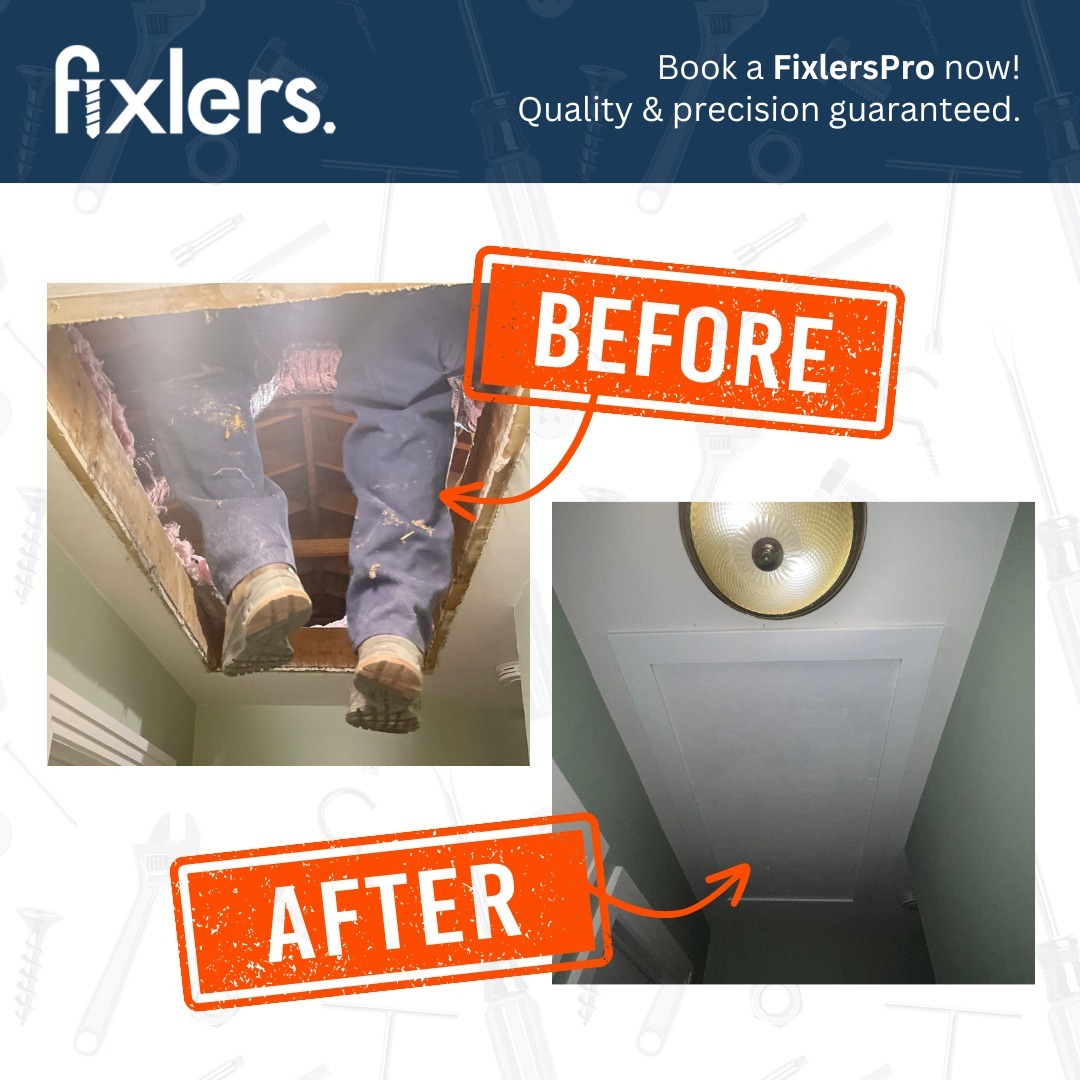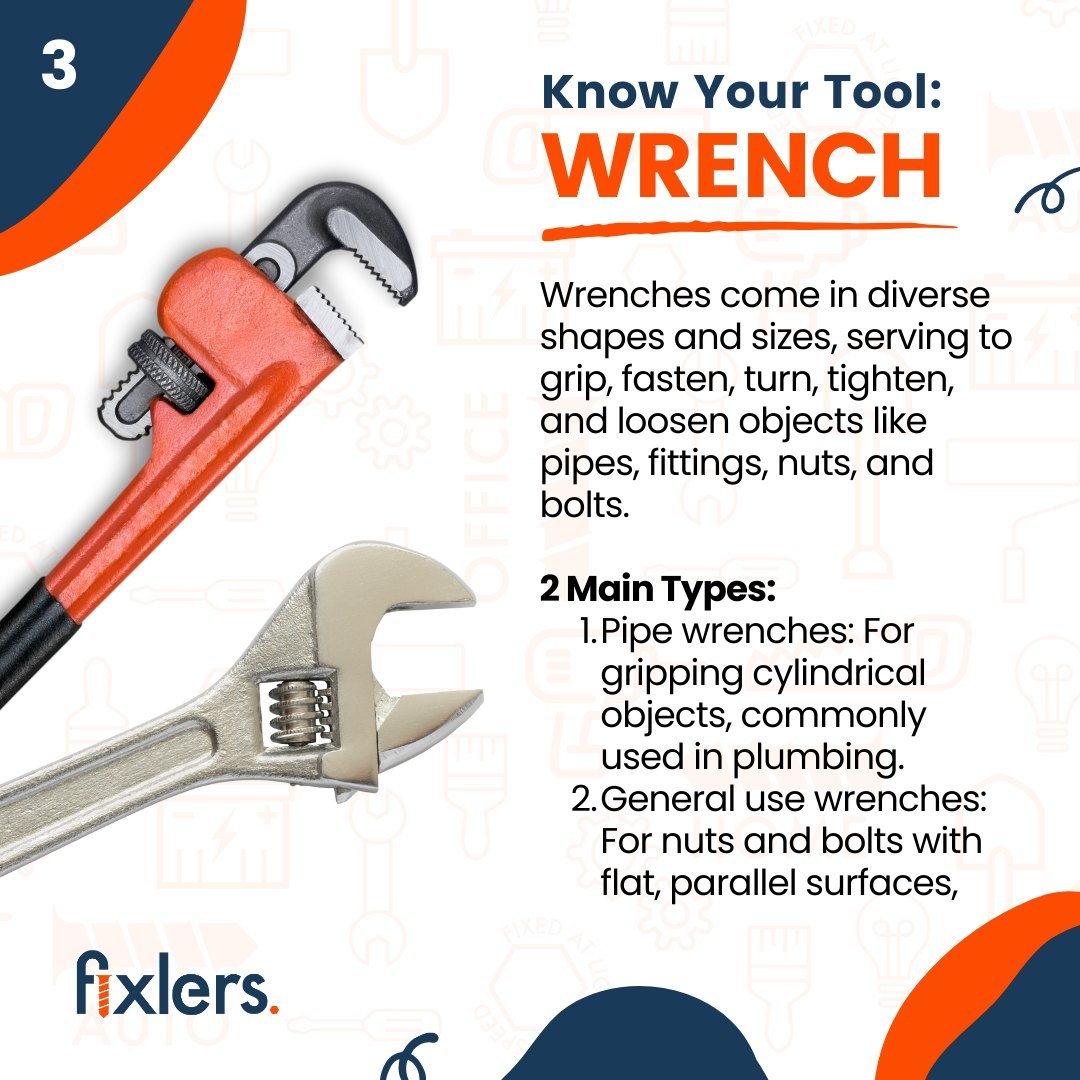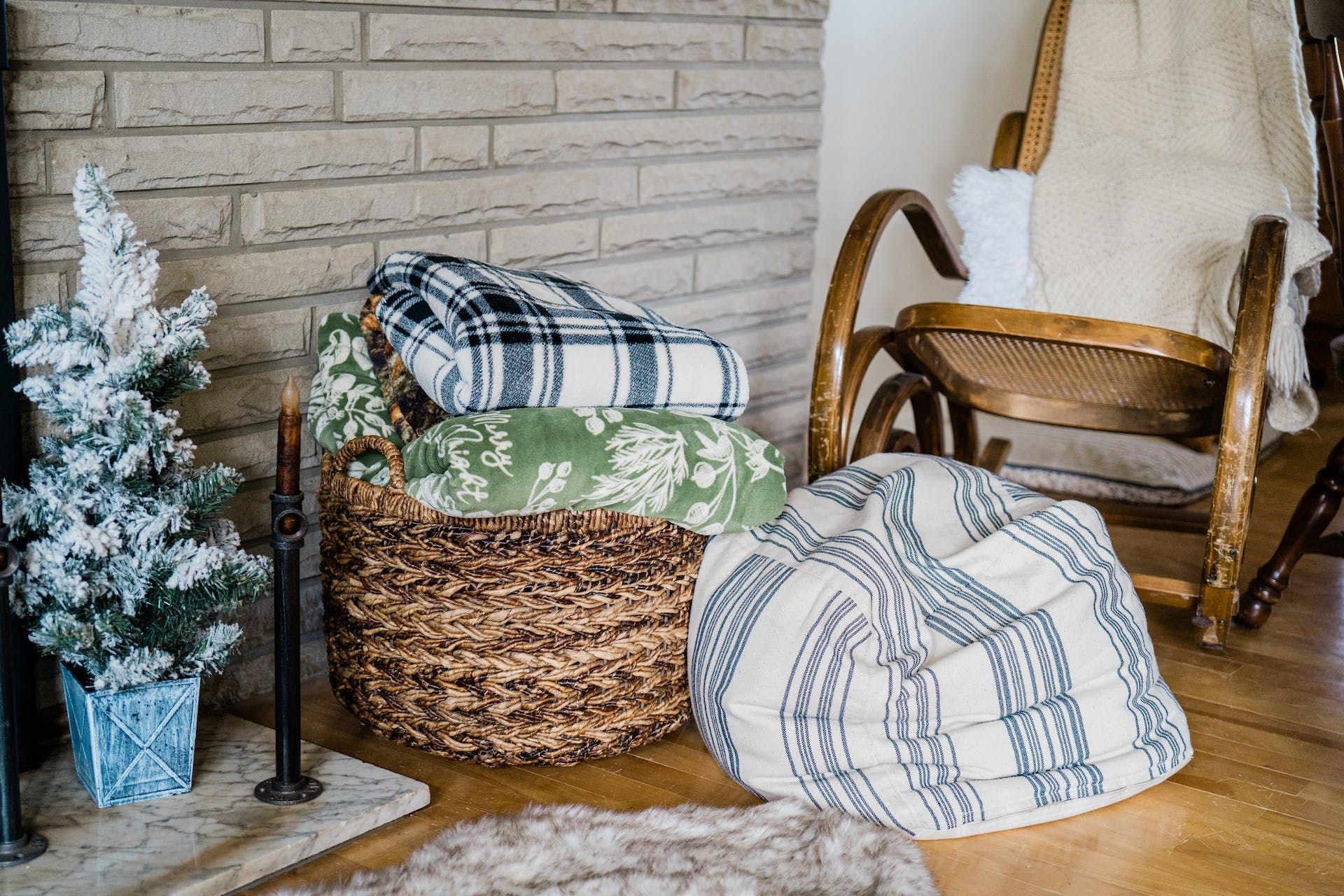Just Say It in Your Own Words.
Simple and Powerful.
Introducing our innovative app that puts you in control. With Fixlers, you have the freedom to express your service needs precisely the way you want. Whether it's plumbing, electrical, HVAC, appliances, furniture assembly, or handyman services.
Top rated and Trusted


Join us on our journey
Discover the Joyful Journey with Fixlers: Embrace positivity and adventure as we explore new horizons together!
What’s Next for Fixlers?
Embracing Tomorrow: Unveiling Fixlers’ Ambitious Roadmap and Innovation Journey.
Step into Fixlers' Future
Gear up for a transformative journey with Fixlers' innovative platform enhancements. Unveiling a host of new features and functionalities designed to streamline your service experience, from remote approvals and recurring services to advanced room-based ordering.
What to Expect from Fixlers' Platform Enhancements
- Enjoy intuitive tools for booking on behalf of someone else, with remote approvals and payment addition capabilities.
- Leverage the convenience of recurring service bookings.
- Experience advanced room-based ordering, linked to our knowledge of your past device or installation services.
- Opt for our elite service package, ensuring precise and immediate service commencement.
- Seamlessly order and track materials right within the app.
- Get real-time updates on your Fixlers Pro's location 15 minutes prior to your scheduled service, ensuring synchronized timing.
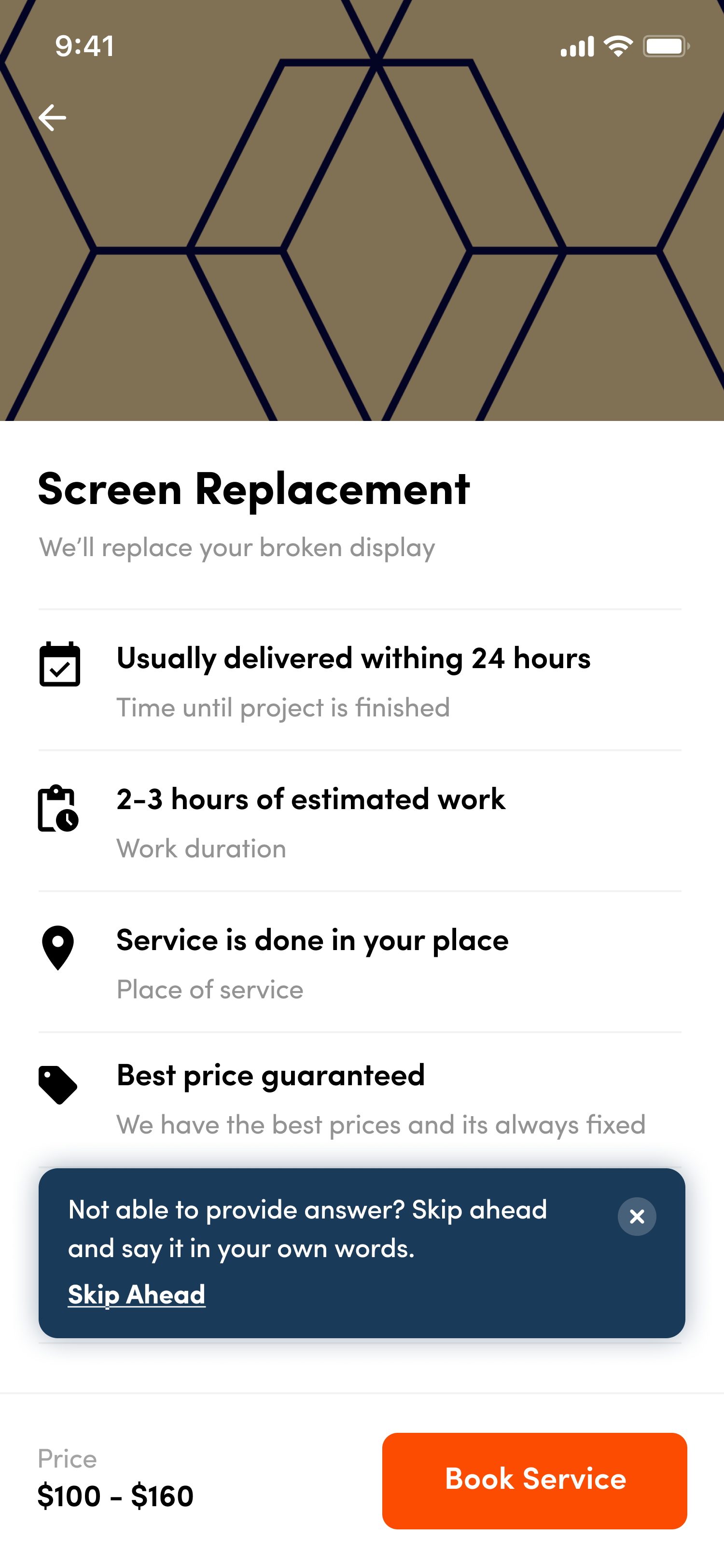
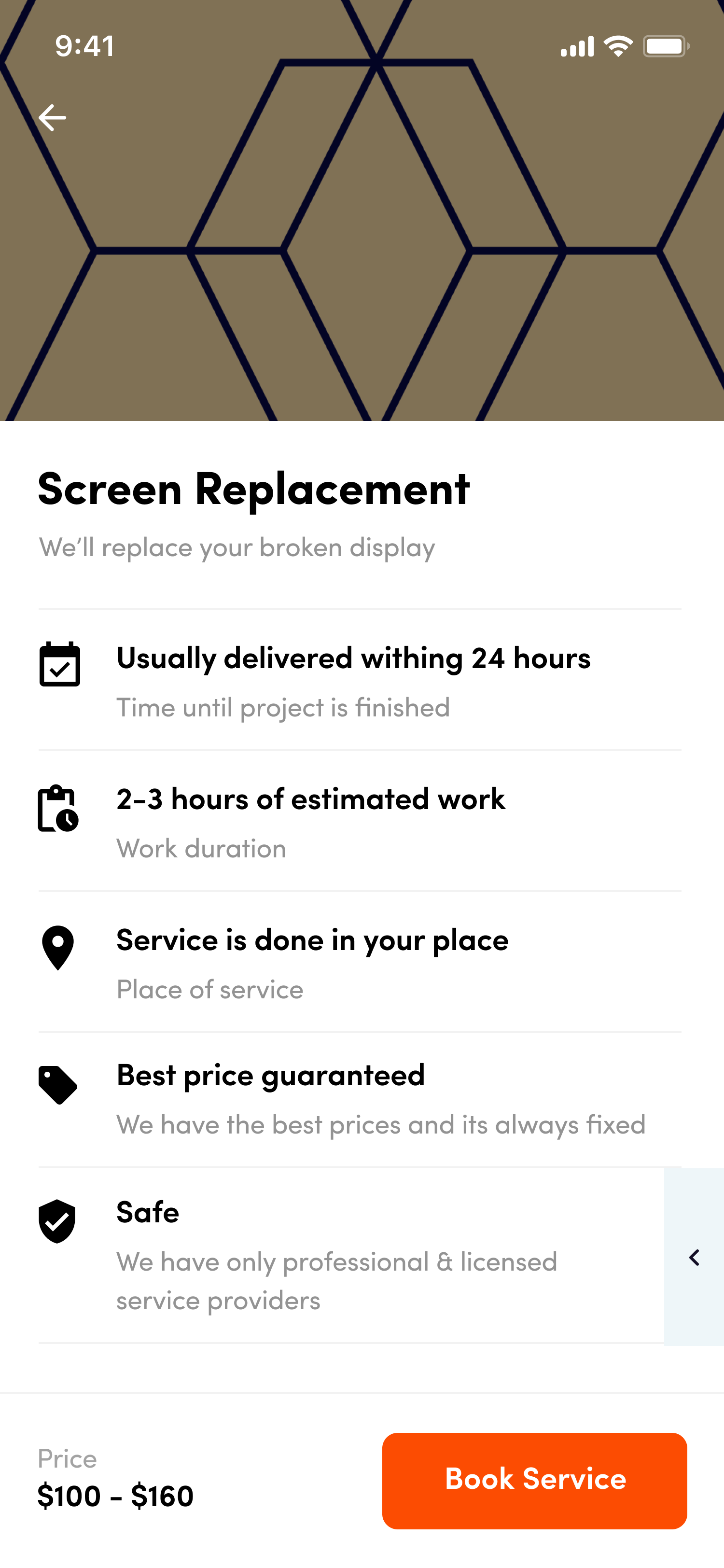
Broadening Horizons, Expanding Possibilities
Explore Fixlers' enriched service offerings, including new categories such as Seamstress Services, Animal Care, and Messenger Services, to name a few. These exciting expansions provide a plethora of solutions tailored to your unique needs.
Highlights of Our Service Catalog Expansion
- Building upon our core 6 services, we plan to implement over 90 new service categories, including Seamstress Services, Animal Care, and Messenger Services.
- Innovative solutions specifically tailored to meet your unique needs.
- Skilled professionals trusted in their fields, ready to provide specialized services.
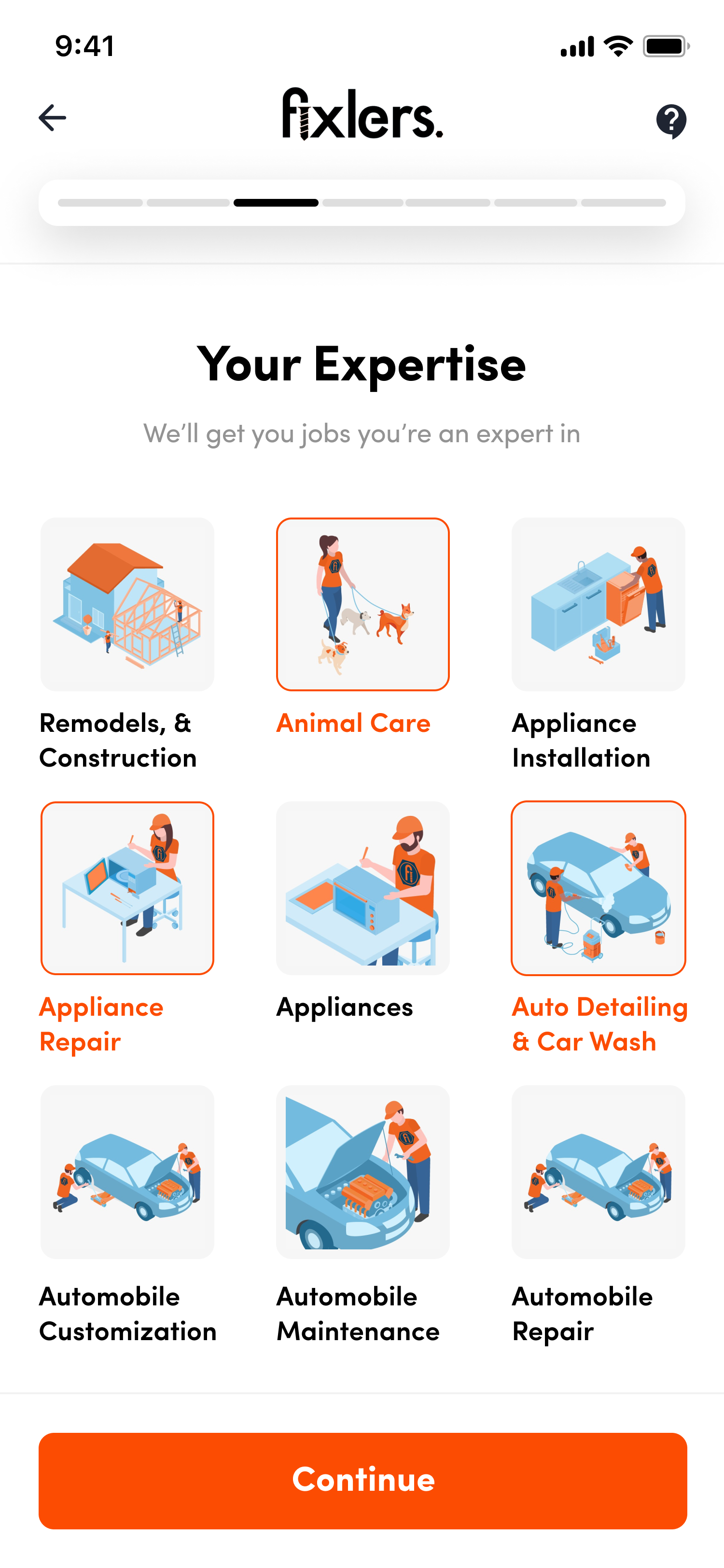
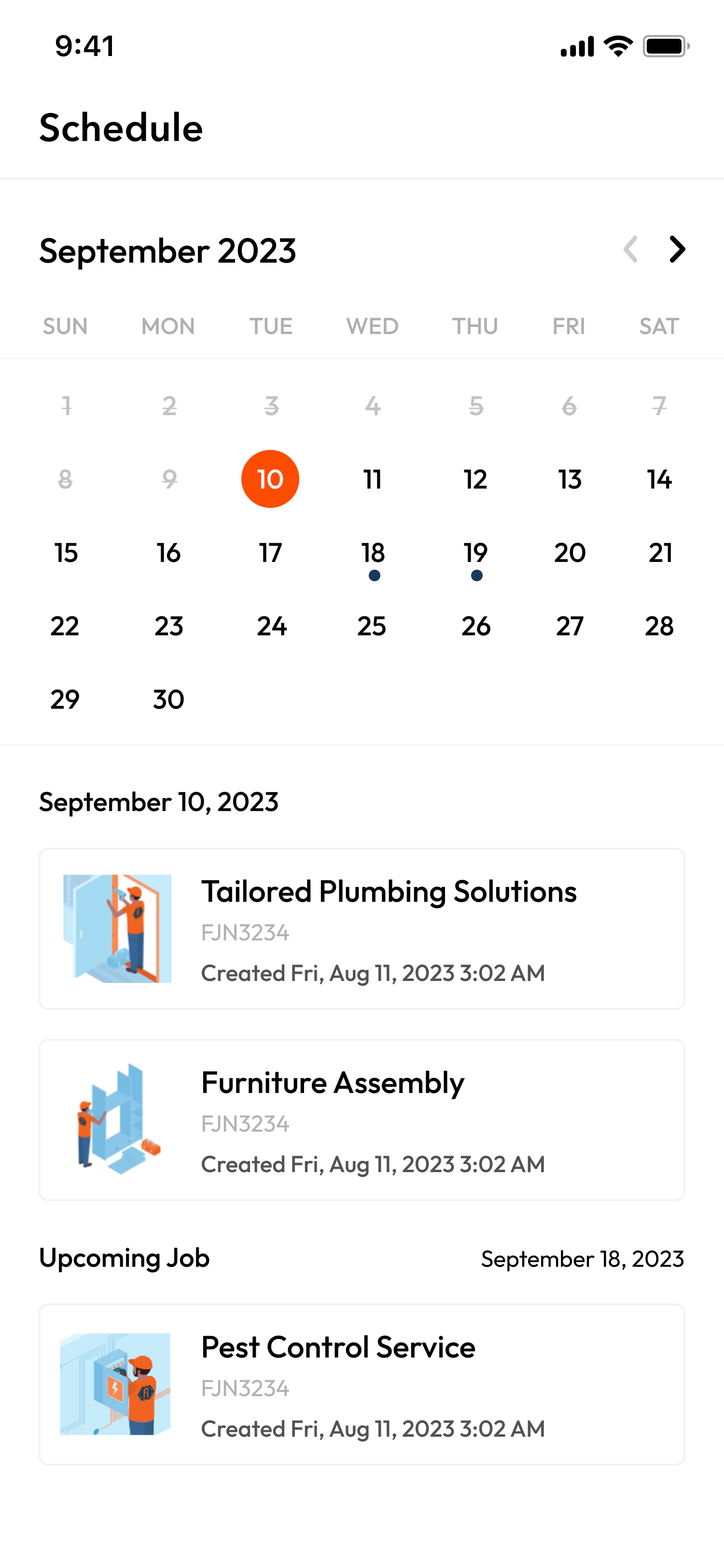
Empowering Future Trade Experts
Embrace the FixlersMentor Program, where aspiring tradesmen receive expert guidance and support, setting them on a path to excel in their craft.
Highlights of the FixlersMentor Program
- Personalized mentorship from seasoned professionals.
- Skill development and industry insights for career advancement.
- Nurturing a community of skilled craftsmen and women.

Paving the Way Across the U.S.
Learn about Fixlers' strategic rollout plan, perfecting our business model in the NY and NJ tri-state area before taking our renowned services to South Florida and Houston, Texas, while spreading our network across the nation.
Anticipate the Excitement of Fixlers' Nationwide Journey
- Begin with the perfected service model in NY and NJ, ensuring top quality from the start.
- Set sights on South Florida and Houston, Texas, expanding our reliable services to new regions.
- Gradually spreading across the nation, maintaining the same trusted professionalism and quality.

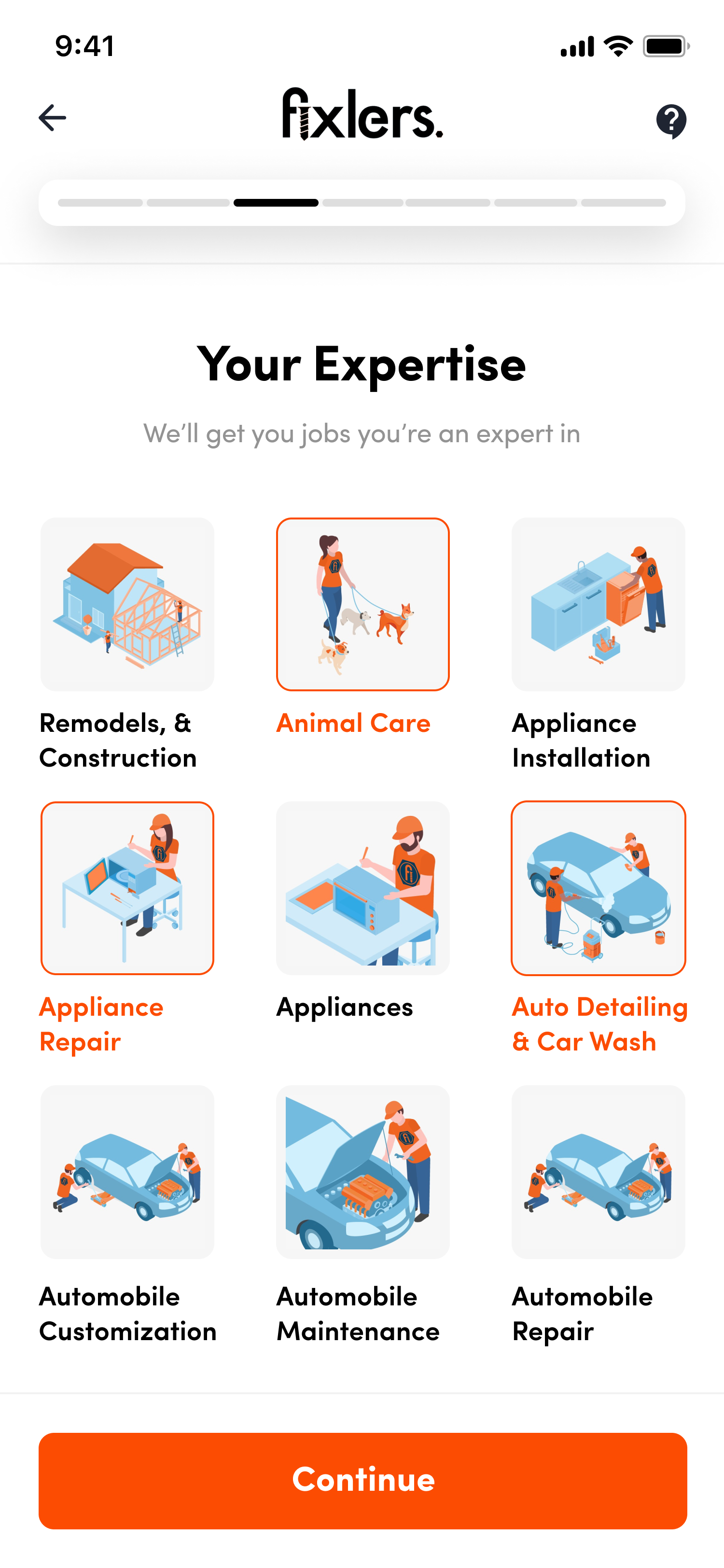
Making History with Fixlers
Chart the course of the future with Fixlers. We're a team of forward-thinking innovators, building the next big thing in the service industry. Join us in this trailblazing journey, offering boundless opportunities for retailers, financial institutions, and other potential partners.
Why Forge a Trailblazing Partnership with Fixlers?
- Be part of strategic alliances driving transformative growth and industry disruption.
- Connect with a vast network of skilled professionals and service providers.
- Leverage the momentum of our innovation-driven journey for market expansion and unprecedented opportunities.
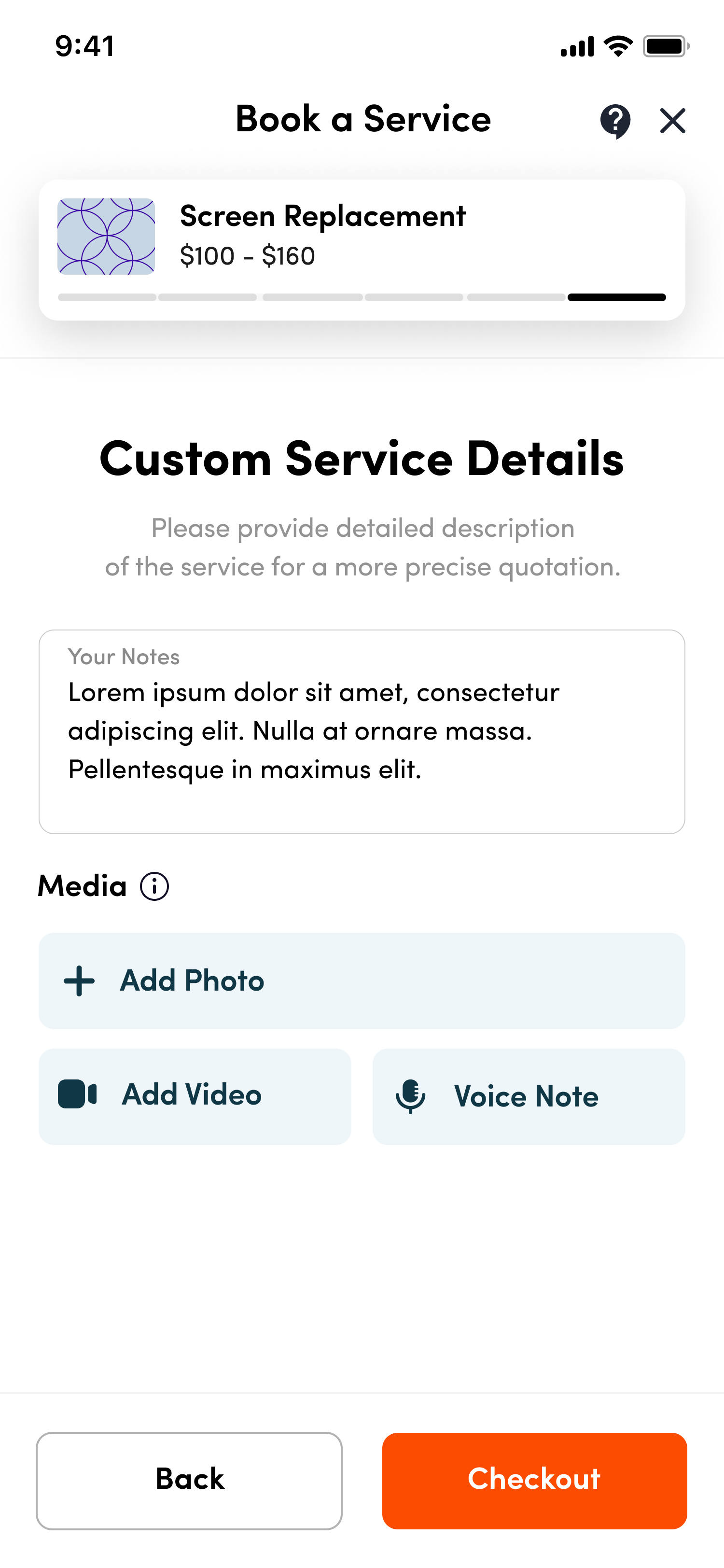
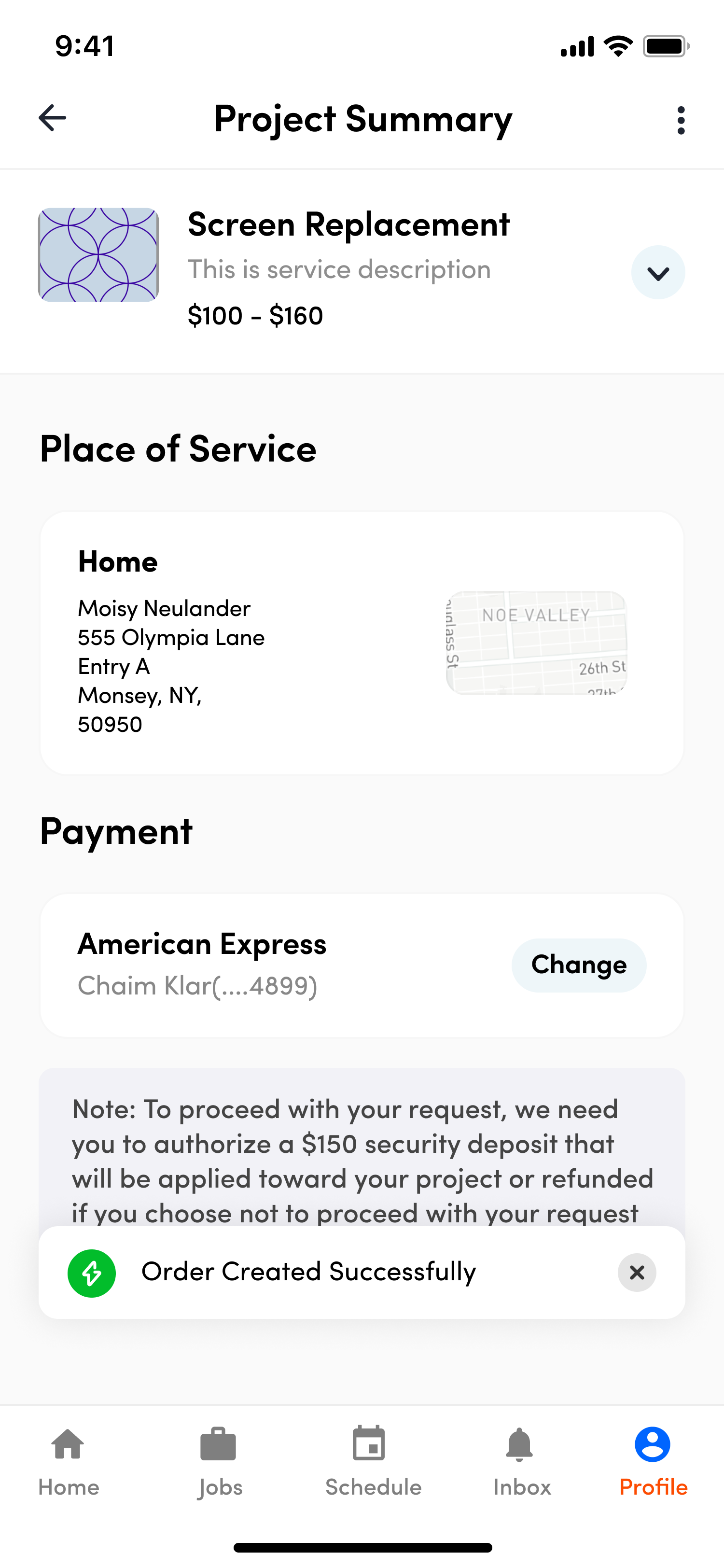
Unleashing Tomorrow’s Potential
Immerse yourself in Fixlers’ visionary next-generation solutions, where advanced technologies and industry insights converge to redefine your service experience. While currently catering to end users, we are gearing up to extend our cutting-edge technology to businesses like management companies and small service providers, empowering seamless service execution and elevating operations.
Advantages of Next-gen Solutions
- Empower your team and tenants with custom service apps for seamless approvals and efficient execution of service needs.
- Streamline daily operations with job solicitation, transparent pricing, and easy client payment features.
- Our adaptable solutions grow with your evolving needs, ensuring long-term success and scalability.
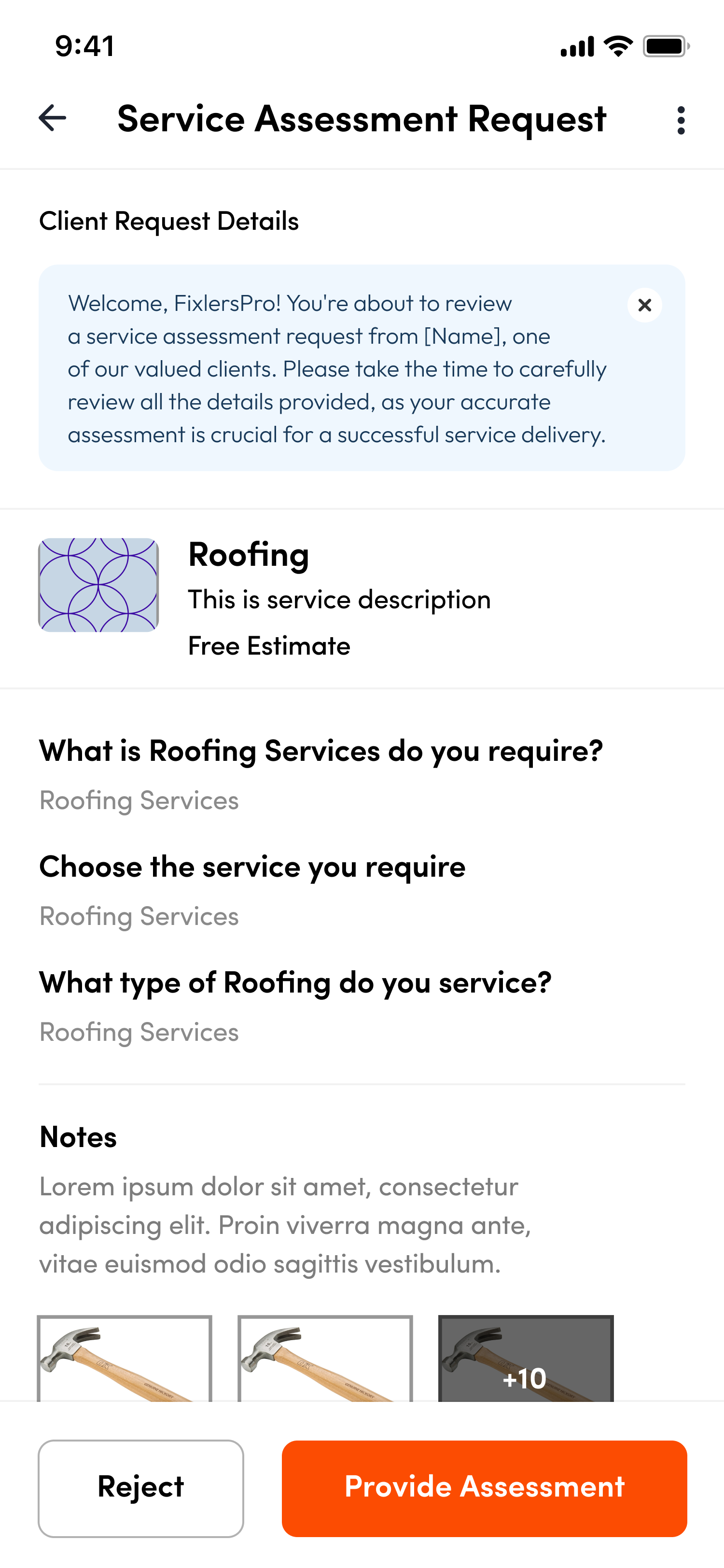
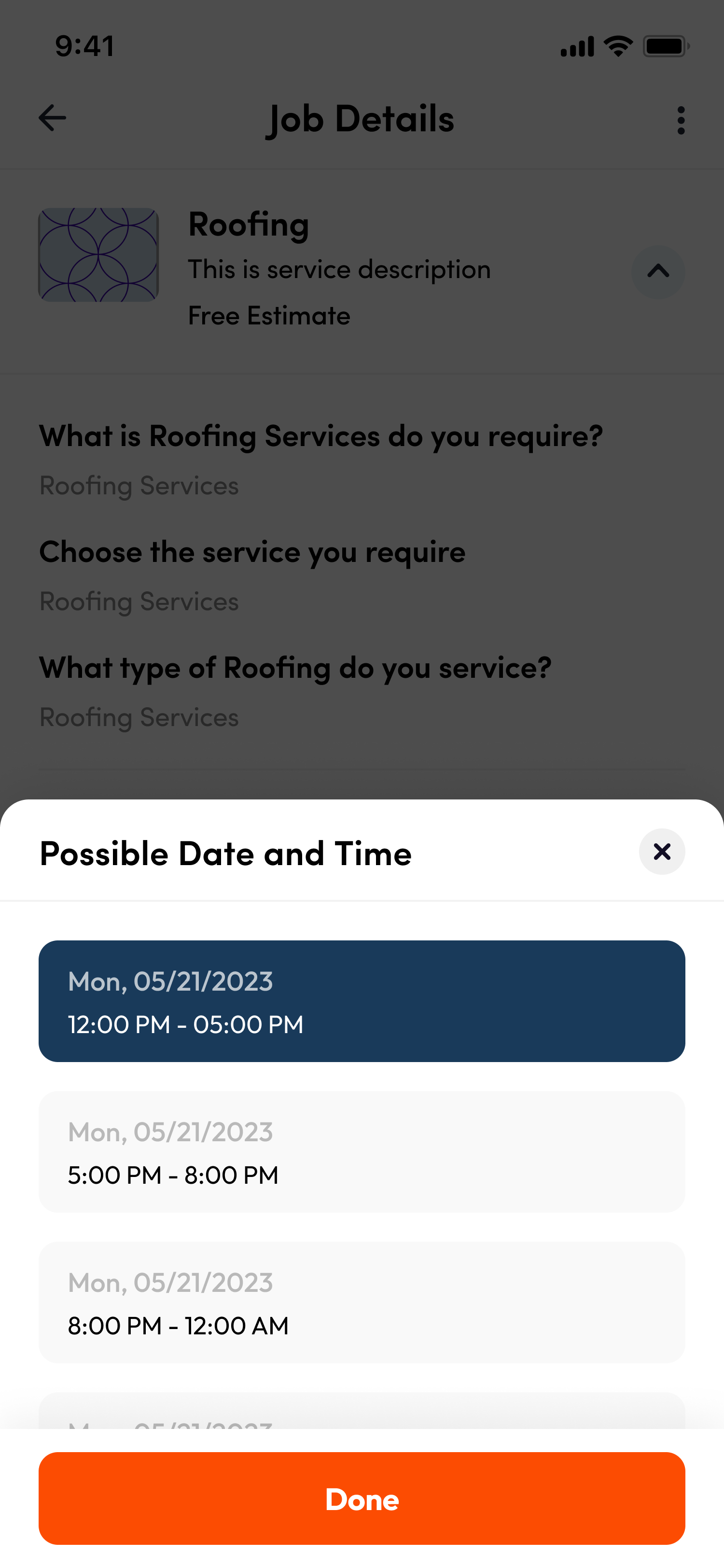
10,000+
Download in App Store and Google Play Store
55,000+
FixlersPro's Available to Serve You
25,000+
Completed Jobs
What Do Our Customers Say About Us?
Read about the Fixlers experience from our customer themselves!
How It Works: Navigating the Fixlers App
Join us in this visual journey on how to seamlessly request services on fixlers.com. We've meticulously crafted each step to offer you an unrivaled experience. Dive in!

Home Screen
Start at our welcoming interface where, besides initiating your service request, you can delve into insightful blog posts and more.
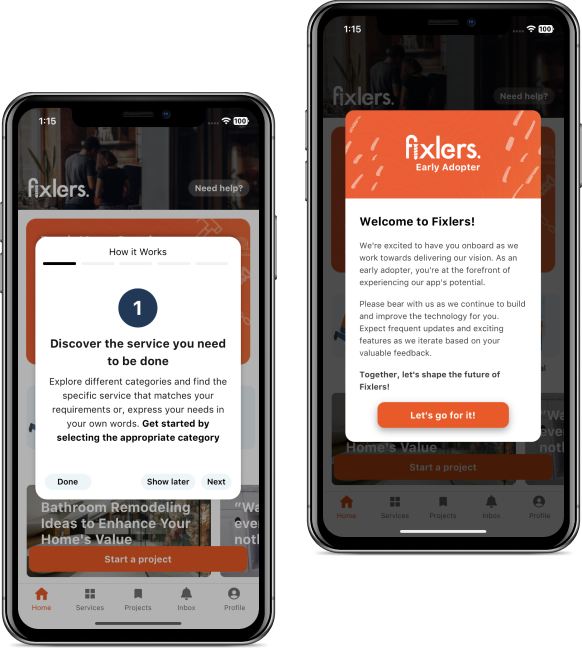

Category selection screen
Browse through a diverse range of service offerings available for you.
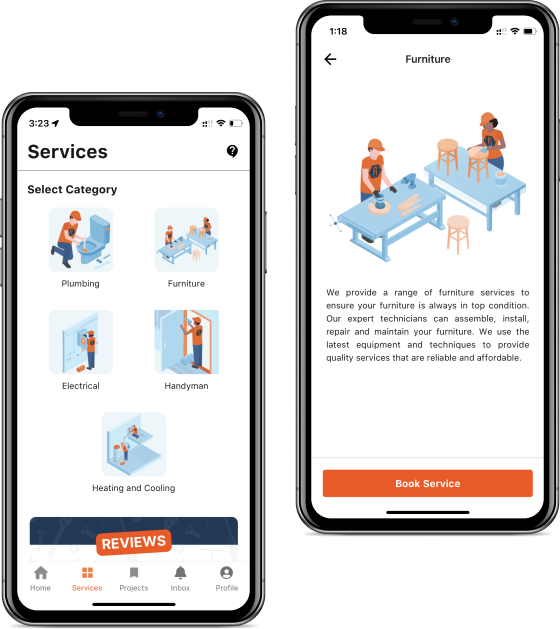

Service Selection
From upholstering to plumbing to electrical tasks and beyond, select the service category fitting your need. We're constantly expanding our range!
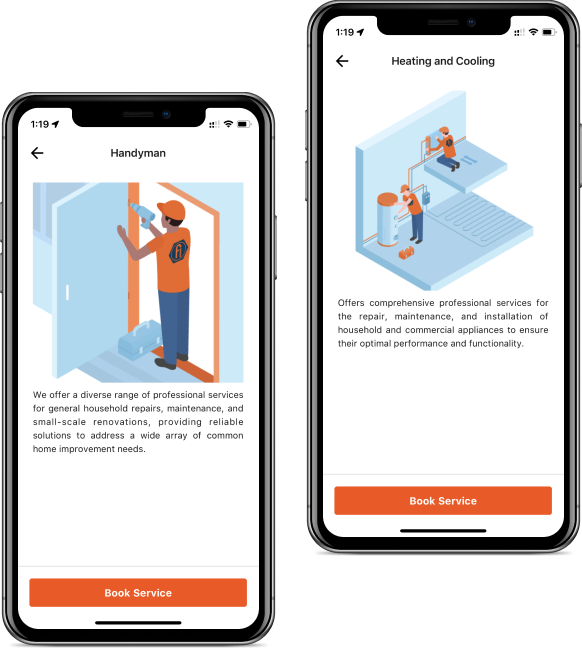

Detail Your Job
Be descriptive about your task and hit "Book Service" to kickstart your Fixlers journey.
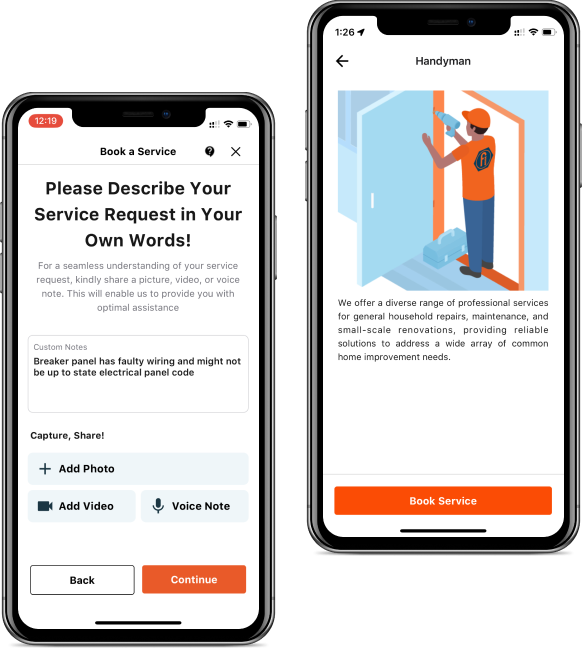

Enhance Your Request
Add a "Custom Note" or share media like videos and voice notes to help the FixlersPro fully grasp your requirements.
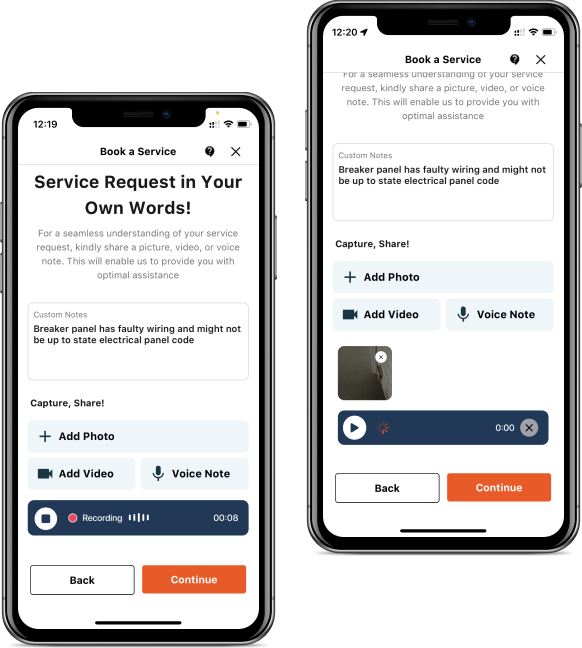

Schedule & Location
Decide on the most convenient date, time, and location for you. Our scheduling interface is designed for clarity and ease.
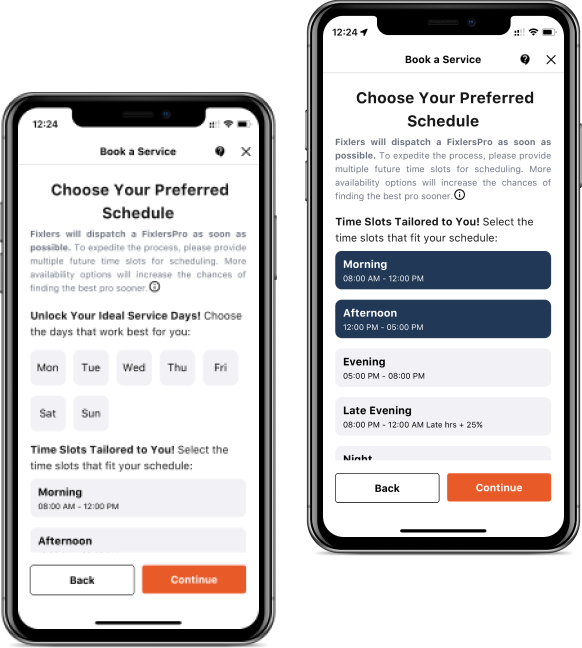

Create Your Project Request
A simple tap on "Create Project Request", and you're all set. Service made simple.
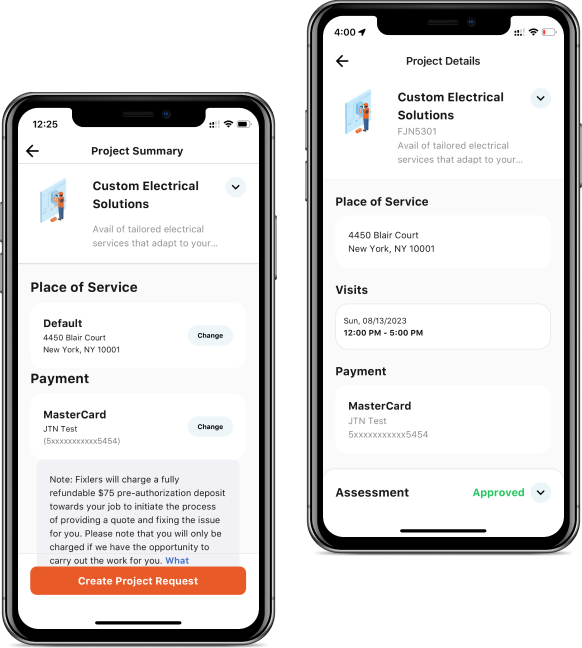

The Future of Service Requests
Embrace top-tier services at your fingertips. Why wait? Download the Fixlers app now and elevate your service booking experience!
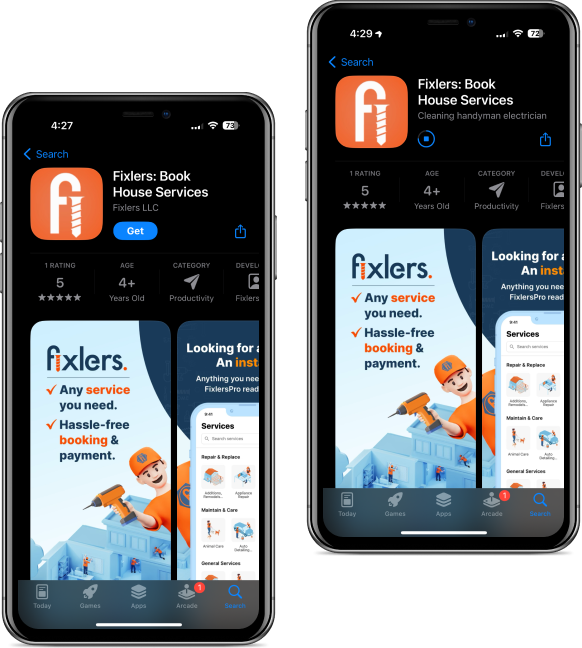
From big projects to little fixes,
Fixlers has your to-do list covered.
Order local handyman, plumber, electrician,
and mechanic services in minutes.

Fast & easy booking

Hassle-free payment

Insured & trained team
We’re here for every job, any time.
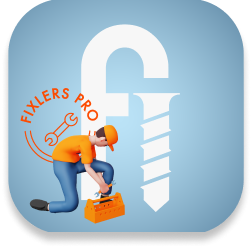
Need the job done, without the headache? Fixlers makes it easy.
Why Fixlers?
Never push off a chore again.
Take care of any fix-it job at your home, office, or car — hassle-free.

On your schedule
Book services ASAP or schedule for the days and times that work for you.

Any job, every service
Choose from standard jobs or create a custom project that fits your needs.

Stress-free booking
Let Fixlers handle scheduling, payment, and job satisfaction, guaranteed.
Join the Crew
Plumber, handyman, or regular mister-fix-it?
As a FixlersPro, you can have it all: Connect with more local clients, earn money in your spare time, and only take on the jobs that match your schedule and expertise.
Apply today to get started.

Become a FixlersPro Mentor
If you’ve got more experience under your belt, we want your help. Earn $$$ and rewards for giving advice, mentorship, and tech help to our pros in the field.
Become a Mentor

